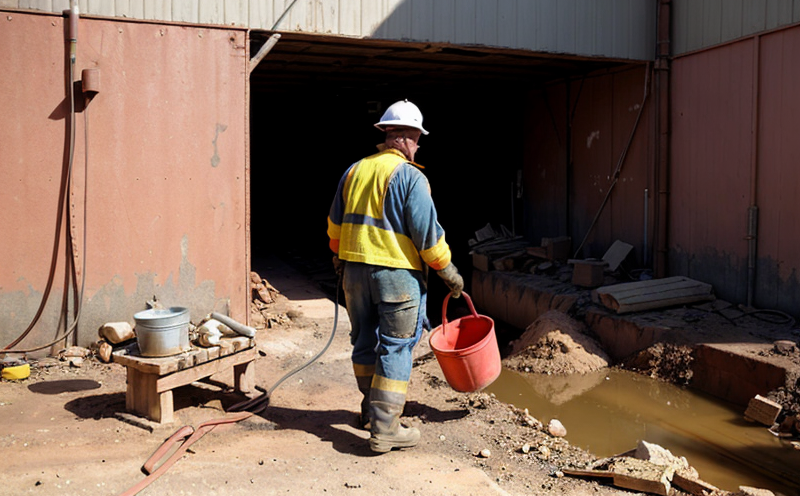NIOSH 5030 Diesel Particulate Matter Monitoring Testing
The NIOSH 5030 test method is a cornerstone in the evaluation of occupational exposure to diesel particulate matter (DPM) within mining environments. This standard, developed by the National Institute for Occupational Safety and Health (NIOSH), ensures that mining operations comply with stringent health and safety regulations aimed at protecting workers from lung diseases, cancer, and other respiratory illnesses caused by prolonged inhalation of DPM.
The primary objective of this testing is to monitor and control exposure levels in order to maintain a safe working environment. Diesel engines used in heavy machinery within mining operations generate significant amounts of DPM. These particles can lead to serious health issues if not managed properly, making the NIOSH 5030 test critical for compliance with regulatory standards such as OSHA's PELs (Permissible Exposure Limits).
The testing process involves collecting samples using a specialized filter cartridge that captures airborne particulate matter. The collected sample is then analyzed in our state-of-the-art laboratory facilities, where we employ advanced analytical techniques including gravimetric analysis and optical particle sizing.
Our team of experts ensures thorough specimen preparation which includes careful handling to avoid contamination or alteration of the sample's integrity. Once processed, the samples are subjected to rigorous analysis following precise procedures outlined in NIOSH 5030. This method guarantees accurate measurement of respirable and total DPM mass.
The results provide actionable insights into compliance with occupational health standards, helping mine operators identify areas for improvement. By adhering to these stringent protocols, mining companies can protect their workforce while also ensuring regulatory compliance.
Scope and Methodology
| Aspect | Description |
|---|---|
| Metric Definition | The NIOSH 5030 test measures both respirable and total diesel particulate matter in the air, focusing on particles less than or equal to 10 micrometers (PM10) for respirable fractions. |
| Sampling Method | Affinity filters are used to capture airborne samples over a specified period. These filters are then analyzed using gravimetric techniques and laser scattering methods. |
| Analysis Procedure | The collected samples are dried, weighed, and compared against reference materials to determine the mass concentration of DPM. Additionally, optical particle sizing is used for detailed analysis. |
Eurolab Advantages
At Eurolab, we pride ourselves on providing comprehensive and accurate NIOSH 5030 testing services. Our dedicated team of professionals ensures that every sample is handled with the utmost care, from collection to final analysis.
- ISO/IEC 17025 Compliance: Our laboratory adheres strictly to international standards ensuring reliability and accuracy in all our tests.
- Experienced Technicians: Our staff possess extensive experience in occupational health testing, guaranteeing precise results every time.
- Advanced Equipment: Utilizing cutting-edge technology allows us to deliver highly accurate measurements and detailed reports.
- Compliance Expertise: With a deep understanding of regulatory requirements, we help our clients stay ahead of compliance deadlines.
Quality and Reliability Assurance
To ensure the highest level of quality in all our services, Eurolab employs stringent quality control measures. Our methodologies are designed to meet or exceed international standards such as ISO/IEC 17025.
- Regular calibration and validation of equipment
- Detailed documentation for every testing process
- Use of certified reference materials
- Continuous training and education for our staff to stay current with industry best practices
- Independent audits and reviews by external bodies





